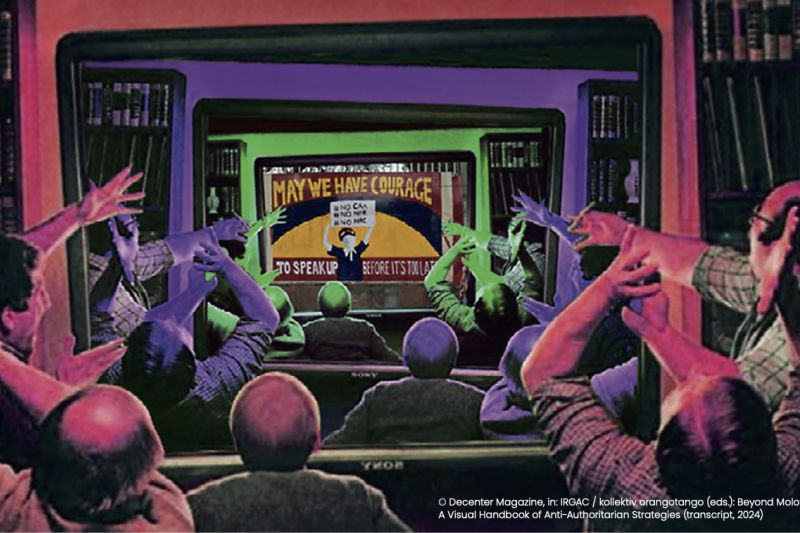Authoritarian and fascist tendencies are currently on the rise in many parts of the world. Consider the US government launching a mass hunt for eleven million illegalized workers and levelling a continuous round of war against the poor, right-wing and anti-migrant politics gaining further strength in most European countries, the rise of Hindu-nationalism in India, or libertarian authoritarianism in Argentina. While these developments cannot be analyzed without attending to their specifics, it becomes clear that the reductive focus on right-wing or authoritarian parties does not help to understand (and strug-gle against) the current protofascist conjuncture of ever-expanding repression and carcerality in societies of aggravated neoliberal crisis. Neither does it unveil the nexus of normalized state racism and right-wing extremism.
In this talk, I discuss the current conjuncture of late fascism by drawing on black radical and anti-colonial readings of fascism, and its relation to colonialism, capitalism and imperialism. I focus especially on anti-colonial feminist readings and bring these into conversation with contemporary abolitionist thought and practice to sketch out the (im-)possibilities of anti-fascist horizons.

Vanessa E. Thompson is Associate Professor and Distinguished Professor for Black Studies and Social Justice in the Department of Gender Studies at Queen's University in Canada. Previously, she was a research assistant at the European University Viadrina and Goethe University. She researches and teaches in the field of Black Studies and anti-colonial theories, with a particular focus on racism and state violence, abolitionism, feminism, and social movements. She works with abolitionist movements in Europe and beyond. Her most recent publications are “Policing the surplus crisis. Carceral racism and abolitionist resistance in German” (Ethnic and Racial Studies, 2025) and “Surplus people of the world unite! On borders, policing, and abolition,” in: Border Abolition Now (Pluto Press, eds. Riva et al., 2024).
The CGC strives to make its events as accessible as possible. If you require assistance to participate in our event, please let us know your support needs by November 4, 2025, by emailing cgcentrum@soz.uni-frankfurt.de. We will then endeavor to reduce any barriers within the scope of our possibilities.
The room is accessible via elevators. There are two accessible toilets on the first floor (1.G40s and 1.G40h).
There is an all-gender toilet (1.G40n) with standing and sitting toilets on this floor. There is also a FLINTA* toilet (2.G40q) on the 2nd floor of the CGC.

